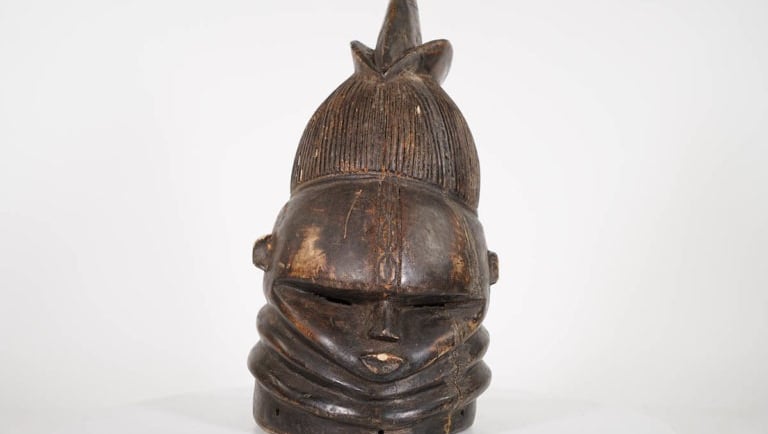The Sowel Mask
The Sowei mask was integral to the cultural and spiritual life of the Mende community, primarily located in Sierra Leone and parts of Liberia. These masks, crafted predominantly by male carvers but used exclusively by women, are central to the Sande society, a powerful women's secret society that plays a crucial role in the initiation rites and social education of young girls.
AFRICAN HISTORY
deangichukie
7/26/20241 min read


The Sowei mask was integral to the cultural and spiritual life of the Mende community, primarily located in Sierra Leone and parts of Liberia. These masks, crafted predominantly by male carvers but used exclusively by women, are central to the Sande society, a powerful women's secret society that plays a crucial role in the initiation rites and social education of young girls.
The Sowei mask, also known as the Sande mask, is a distinctive and iconic piece of Mende artistry. Characterized by its serene, oval-shaped face, smooth, dark patina, and intricate coiffure, the mask embodies ideals of beauty and womanhood. The high forehead represents wisdom, the downcast eyes signify modesty, and the small, closed mouth underscores the virtue of silence. The elaborate hairstyles often mimic those worn by Mende women, indicating status and social identity.
During the Sande initiation ceremonies, the Sowei mask is worn by the female leader, or Sowei, who guides the young initiates, known as bondo, through their transition into womanhood. The mask and accompanying costume transform the wearer into the spirit of Sande, bridging the human and spiritual worlds. This process reinforces social norms and imparts crucial knowledge about womanhood, morality, and community responsibilities.
The craftsmanship of the Sowei mask is a testament to the Mende people's artistic skills and cultural values. Each mask is unique, reflecting the individual carver's style and the intended wearer’s status. The masks are carved from wood and often adorned with raffia, beads, and other materials to enhance their visual impact. The dark color of the masks, achieved through the application of vegetable dyes and oils, signifies the inner beauty and spiritual depth valued by the Mende.
Today, the Sowei masks remain a vibrant part of Mende cultural practices and continue to be celebrated for their artistic and cultural significance. In addition to their role in initiation rites, these masks are now also recognized globally as symbols of African heritage and identity.
